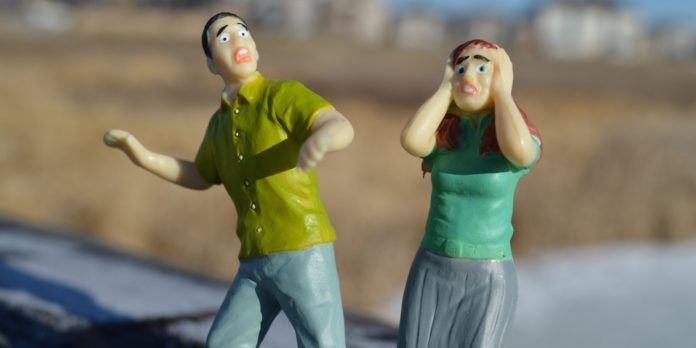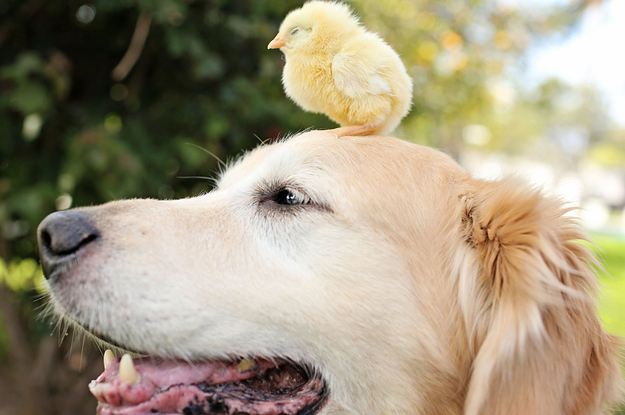I once knew a high school football player (Ill call him Jay) who was destined to go places. Hed played football since he was in elementary school, and by the time he reached his freshman year of high school he was already being watched closely. Jay had always dealt with anxiety but when he hit high school the anxiety increased exponentially. It wasnt uncommon for Jay to have panic attacks that no one but family and his guidance counselors knew about. While he quit most social activities, he stuck with football and by his junior year of high school he was being recruited by some notable college football programs.
Jays anxiety had increased however with each passing year, and had begun effecting his first love, football. At times his anxiety was so bad, he struggled to run out onto the field at game time. When his senior year ended, Jay turned down every offer for athletic scholarships opting to attend a community college close to home. His family dismayed at the ever increasing level of anxiety didnt understand and tried to force him into a variety of unwanted situations that typically ended in disaster or arguments.
In an effort to escape what he viewed as his familys disapproval and the shame that accompanied that, he moved in with his grandmother who assisted him in taking care of his college related activities until his anxiety became so debilitating that he opted for online classes. His hopes of avoiding situations that caused him to panic were dashed once he realized many online courses required some level of personal interaction as did customary visits to financial aid and other college student resources. Jay, a former high school football standout who had earned a GPA also worthy of scholarships, eventually dropped out of community college. The last straw for Jay had been collapsing as he arrived on campus one day, literally crawling on the colleges tile floor in a panic. The last time I checked on Jay, he rarely ventured into social situations. Occasionally he grocery shops for his grandmother and in his spare time he tends to her vegetable garden which he finds peaceful.

People who suffer from anxiety can also experience panic or anxiety attacks triggered by uncomfortable situations and triggers vary. Many people who live daily with anxiety benefit from medication, but counseling and cognitive therapy is just as important. The earlier coping skills are introduced, the better. Anxiety can also manifest alongside other conditions as well, most commonly depression. Left untreated, anxiety of any type can become disabling over time.
Fear and anxiety of all types prevent people from doing things they enjoy, even limiting them from things they need to do.
Fear and anxiety of all types prevent people from doing things they enjoy, even limiting them from things they need to do. Contrary to what one might think, most people with social anxiety want to be social and experience a tremendous amount of guilt over their own avoidance and inability at times to engage because of their struggle. Thats why seeking treatment is incredibly important. Thats also why the support of family and friends is equally crucial. If someone you love is struggling with any sort of anxiety, be sure to listen and validate their feelings. Anxiety is not something that can easily be turned off and neither is it something that will pass.
Below are 10 tips for living and dealing with anxiety in relationships and family.
Release your own guilt. Its important for partners to understand first that we dont have control over another persons emotions, challenges or difficulties. Dont allow negative emotions or feelings of guilt to determine how youll react to their situation. Its also important for people with anxiety not to project their anxiety and worries on others, and its equally important that guilt not factor in to any living arrangements, relationships or family.
Be proactive. As with any relationship, its important to work to know each others limits and vulnerabilities. Sometimes people with anxiety are reluctant to discuss it as it can be uncomfortable. However approaching it proactively gets the issue out there, and makes life easier for everyone, even if its a challenge at first.
Set some ground rules. Ask some questions. Who is a morning person? Who is an evening person? When is it acceptable to have friends or guests over? How do we handle keeping our space cleaned and maintained? People dealing with anxiety do better when a clear understanding is in place, and its very important to respect each other and not just say it but show it. When we dont follow agreements, (verbal or otherwise), it causes undue stress and destroys trust.
Confront conflict. Dont let conflict fester. Everyone knows what it feels like when problems or concerns are not addressed. Youre not helping your relational anxiety issues when you walk on egg shells. You may be worried youll cause them to have a panic attack or harm the relationship, but people with anxiety need for issues to be settled quickly.
Think about what they need. Sometimes confronting conflict is one of the least selfish things you can do.
At the same time, its important to approach difficult situations in a way that will not exacerbate stress. If you are someone who raises your voice by nature under stress, and your spouse or family members are not, it stresses them out. Its not always best to do unto others as you would have done unto you, sometimes its best to do unto others as they would prefer you do unto them. Think about how that person might prefer you approach them. Think about what they need. Sometimes confronting conflict is one of the least selfish things you can do.
Dont assume. Anxiety is as diverse as the people who live with it. Some are introverts, and some are extroverts, some are hardworking type A personalities and others are quite the opposite. We cant gauge anxiety based on a persons personality.
Dont assume that a loud, partying, extroverted, adventurous person could not have anxiety.
And anxiety can strike those who deal with it anytime, anywhere but when were thoughtful about it in our relationships, it can take us less by surprise and itll be easier to cope with.

Know your space. Share the space but dont encroach. When we live together, its easy to forget that we share a space and that people are still entitled to their own areas and that personal space is a different concept from shared space. Messiness and disorganization can cause anxiety, and at the same time, being overly organized or compulsive, or rigid about our space can also cause frustration. Decide which space is actually shared space, and which space is personal space or off limits to the other person. Space matters!
Dont assume that a loud, partying, extroverted, adventurous person could not have anxiety.
Study up! You can help those you love who live with anxiety by knowing as much as you can about it. It makes a huge impact on another person to know that you cared enough to read up and understand more about what theyre dealing with.
When you step up and show interest by doing your own research, youre not only contributing to a positive living environment for each other, youre also expressing the level of your willingness to love well.
Discover ways to relieve stress together. Find out how they like to relieve stress or anxiety and be willing to join them. For example, if your spouse or family member finds yoga, running, or other exercise to be relaxing or helpful for dealing with stress, make an effort to join them in that. Also, when youre aware of their preferred coping strategies, and you find that your friend may be experiencing some anxiety, you can suggest they may be in need of a run, better yet offer to join, Hey, maybe we should go workout. Thats a non-confrontational way to let them know youre noticing they may be a little stressed and that youre willing to help them deal.
Be open to alternatives. You may also consider the use of essential oils in your living space if there are some oils you can agree on. There are specific oils that have been found helpful for dealing with stress or anxiety. Whether or not you are a believer in natural remedies like essential oils, theyre worth trying.
And finallywait for it
Be sensitive and mindful of your timing. Timing matters. Please, please avoid suggesting someone take their meds in the heat of the moment, or tying it to difficult circumstances or challenging moments. If your loved one uses medication as one way of coping with anxiety, then its ok to discuss and ask questions. Its critical to remember though that most people who take medications for any reason consider use of medications as necessary, whether they like the fact that they take them or not. Theres a fine line when it comes to how we approach others use of medications. The people we love will appreciate sensitivity where medication is concerned. No one wants to feel guilt or shame for taking medications they find helpful and that have been prescribed by their clinician. They shouldnt feel forced or coerced into seeking medication either. Whether or not someone chooses to pursue medication for their anxiety is a personal choice.
Follow Chester Goad on Twitter @CGOAD
*This piece also appears on ChesterGoad.com.
If you or someone you know needs help, call 1-800-273-8255 for the National Suicide Prevention Lifeline. Outside of the U.S., please visit the International Association for Suicide Prevention for a database of resources.
Read more here: http://www.huffingtonpost.com/







